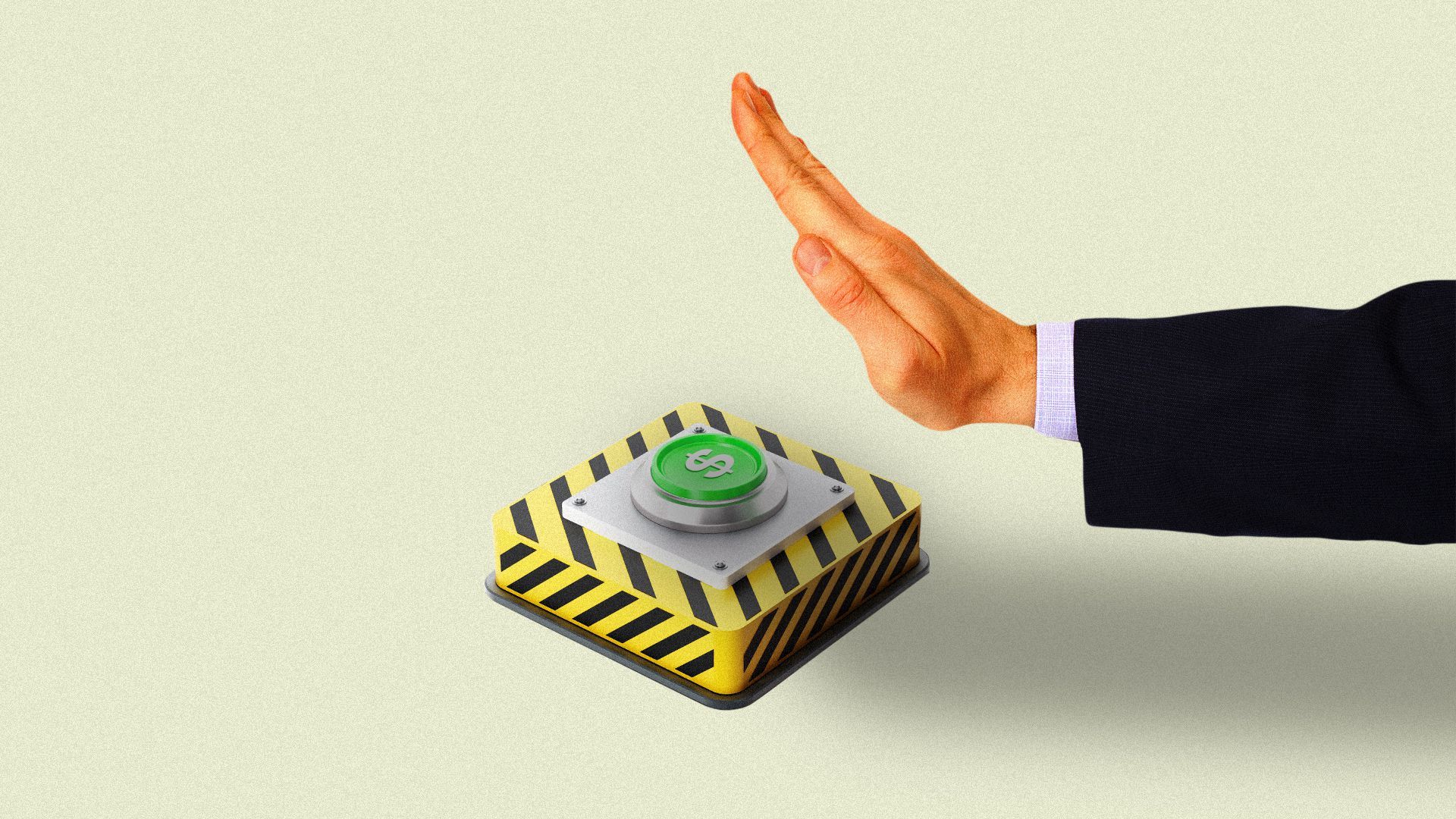Scoop: Trump's budget calls for major boost to nukes
Add Axios as your preferred source to
see more of our stories on Google.

Illustration: Aïda Amer/Axios
President Trump will request a major increase to the budget for America's nuclear weapons arsenal, according to people familiar with the budget request the administration will unveil on Monday.
By the numbers: Trump's 2021 budget calls for $28.9 billion for the Pentagon to modernize nuclear delivery systems and $19.8 billion to the National Nuclear Security Administration — a nearly 20% increase over his previous budget request — for "modernizing the nuclear weapons stockpile," according to people familiar with the budget request.
- "This includes a range of warhead life extension programs, investments in new scientific tools we need to maintain a safe, effective and reliable nuclear stockpile into the future," said a source familiar, "a major increase for maintenance and upgrade to a long-neglected and aging infrastructure, and funding to restore the nation's capability to develop new nuclear warheads."
Why it matters: Political leaders in America have kept delaying modernizing the three legs of the nuclear triad — land-launched nuclear missiles, nuclear submarines and strategic aircraft. These systems have now aged to the "end of their service lives," said Mackenzie Eaglen, defense budget expert at the American Enterprise Institute.
- "We keep putting bandaids over bandaids and now new systems are required," Eaglen added.
Between the lines: There's a lot of bipartisan agreement in defense policy. But Republicans and Democrats tend to diverge when it comes to nuclear forces and arms control agreements.
- Democrats tend to instinctively support international arms control agreements, with a goal to set a path to zero nuclear weapons, whereas Republicans tend to be reflexively skeptical of such agreements and supportive of modernizing the U.S. arsenal.
- Democrats and liberals often argue that improvements to the U.S. arsenal will make nuclear war more likely. Republicans and conservatives tend to argue that the way to prevent nuclear war is to have a stronger arsenal.
Behind the scenes: President Trump is firmly in the latter camp and has often told his aides that the U.S. needs to have the best nuclear weapons program in the world. He has even privately mused about his desire for the U.S. to grow its arsenal, though that does not appear to be the point of this budget request.
- "The president very much believes in nuclear modernization, as reflected by these generous budget increases," said a person familiar with this budget.
The big picture: China has turned the old nuclear calculation upside down. The Cold War-era arms control debate was framed around the U.S. versus the Soviet Union. That bilateral conception of arms control continues to the present day, with the New START Treaty struck between the U.S. and Russia under the Obama administration.
- Trump needs to decide, this year, whether to negotiate with Russia to extend the New START agreement, which expires in 2021.
- But complicating this picture is a new major power, China, whose officials have said they have no interest in participating in arms control agreements.
- Not only that, the Russians and the Chinese are modernizing their nuclear arsenals, while the U.S. is not, Eaglen said. Pakistan and India are growing their arsenals. "The trend lines are moving in opposite directions from the U.S.," she added.
The bottom line: America's nuclear infrastructure is aging, but the project of modernizing the warheads and the missiles is enormously expensive and will take many years. Congress has not shown a capacity to support the spending required so far.
